Connection story: Mari Kalkun and Tunglleysa

Tunglleysa album cover by Gréta Þorkelsdóttir
Today’s connection story is about how Estonian singer-songwriter and folk stylist Mari Kalkun met the Icelandic experimental ambient project Tunglleysa and the acclaimed Scottish musician and producer Howie B, and how it all led to a collaboration that will now in turn meet the public.
Tunglleysa is the experimental ambient music project of producer/musician Pan Thorarensen and composer/guitarist Þorkel Atlason. Mari’s vocals are featured on three tracks of their upcoming album, including the freshly released video single “Sortufen”. As with any professional musical collab, the story pulls in more people, as it spins its course. The album also got input from and a single featuring Mari was remixed by the Scottish musician, producer and DJ Howie B, who has worked with artists such as Brian Eno, Björk, U2, Tricky, Siouxsie and the Banshees. We’ll also hear from Mari’s manager Marili Jõgi, who was nominated for the EMEA 2020 Manager of the Year award, and Juliana Volož, Mari’s international concert agent.
Mari, how and where did you meet Tunglleysa guys and how did that meeting turn into a collaboration?
I met Pan ja Þorkell at TMW, the year must have been 2016. Their band had a nighttime show at Mustpeade Maja, and my friend Kaido Kirikmäe told me I should definitely go. I was getting quite sleepy around midnight, but decided to wait for the show anyway, and it turned out with good reason. They performed there with their band Stereo Hypnosis, filling the stage with ambient soundscapes. I really liked the music, so after the show I went to chat with them. They were great guys, and that’s how we met. A few years later, I happened to perform at the Iceland Airwaves festival, so we met again and this time in their hometown of Reykjavik. Last year they asked me to record some vocals for the album of their new band, so that’s how our musical collaboration started.
From the perspective of the result, is creating music in a room together and at a distance different in any way?
There is a difference, for sure. When you’re physically in the same studio/room, the share of commonality and co-creation is much greater, there is more room for synergy, and it reflects in the music. At the same time, I’ve done quite a few of these kinds of collabs in 2020, and it also is a mode that works in every sense. Just recently I recorded vocals for a Belgian/Senegalese band, whom I’ve never met in person. In such a case, you have to trust your creation into the hands of the partner more, however, if you’re on the same wavelength, you can still get a great result in the end. Music has the magic power of not being concerned with borders and languages.
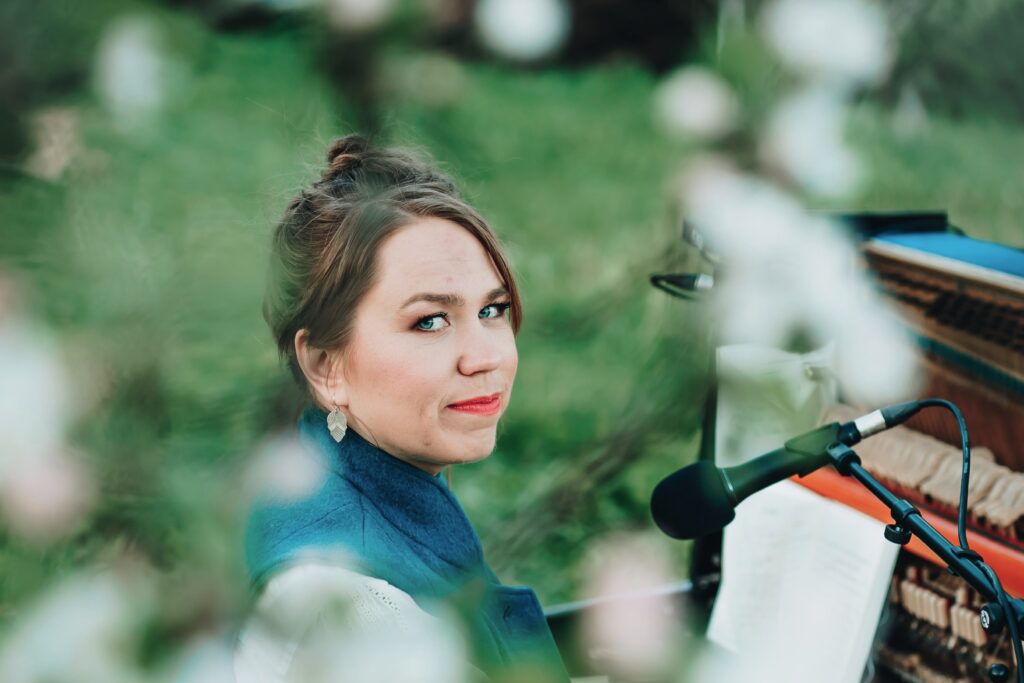
How have TMW and Music Estonia helped in your work over the years?
TMW has been a very important springboard for me. Over the years, the first timid attempts to meet delegates have grown into a truly cool and colourful network of partners and friends. The first TMW show specifically led to my first substantial reviews in foreign media, and I started working with Rockadillo Records and the legendary Tapio Korjus. When it comes to TMW, I keep thinking about how it’s actually like a little miracle that all these serious world class names gather in Tallinn for that week and become enchanted by the atmosphere and music here.
It’s been a joy to watch the development of Music Estonia as an organisation, as well as being part of it as a member. ME has led the process of growth and representation as a “unified front” of Estonian musicians at foreign events and in international projects. The feeling that we are so few but we can still be strong when together, gives a lot of power. In my opinion, this has definitely given Estonian musicians both a certain momentum and a boost in self-confidence.
What is your team like today and how do they support you?
For now, I have a small yet very efficient, professional and dedicated team that supports me in every way and enables me to focus on what’s most important – the music. The greatest joy comes from the fact that all team members are really there 100% and their hearts are in everything they do. My team has always inspired me to go for the maximum in terms of quality – that’s a norm for us.
My team is my manager Marili Jõgi, sound engineer/artist Taavo Teras, international concert agent Juliana Volož, and sound wizard Martin Kikas. Martin is just a genius in audio engineering. I’ve trusted him with all my latest albums and at his Ö Stuudio in Tartu we’ve also done several video productions.
With Marili we’ve been working together for already 5 years now, and I am especially happy about that, because I actually looked for “the right one” to be my manager for a very long time. Over the years our work together has grown into an organic tandem with great momentum. Thanks to Taavo, who also travels abroad with me for live performances, I can always be sure that my concerts will have great sound quality and that my kannel (Estonian zither) will sound right. In addition, he’s such a kind person with a big heart.
Since last year I’ve also been working with Juliana Volož, who is a very competent agent with a wide international reach. She helps find shows abroad and put together tours, she’s always thinking along with us and finding opportunities even in these tough times. In addition, I have a whole host of artists and people, who give me great advice and come help out whenever needed. Having my own team gives me a certain sense of security and instills in me the belief that together we can make even the craziest ideas come to life.
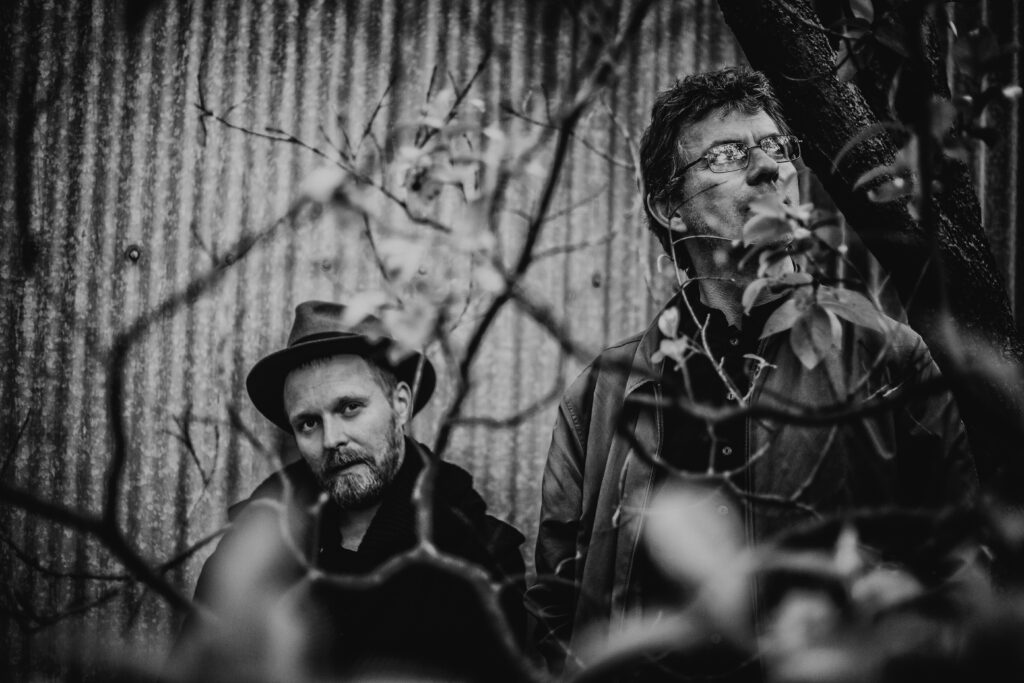
Pan and Þorkel, you were at TMW 2016 with your group Stereo Hypnosis. Your FB post about coming at that time said that you were introduced by the British imprint 130701 / FatCat and our Üle Heli festival at TWM the previous year. Can you tell us more?
We just applied for TMW and we got chosen to play at the 130701 / FatCat & Üle Heli showcase at Mustpeade Maja. It was a great night. But it wasn’t our first time in Estonia, we played at the Eclectica Festival in Tartu with Vladislav Delay in 2009 and 2010, and also at the mysterious Kukemuru Ambient Festival presented by Kaido Kirikmäe in 2016 .
What was it about Mari’s music that captured your attention and sparked collaboration?
Mari came to our TMW concert and we talked a bit. She invited us to come to her concert the night after and there we were mesmerised by her voice and the beautiful arrangements of Estonian folk songs. And then later we had come up with this music we thought perfect for her voice and asked if she would like to contribute. Luckily she said yes.
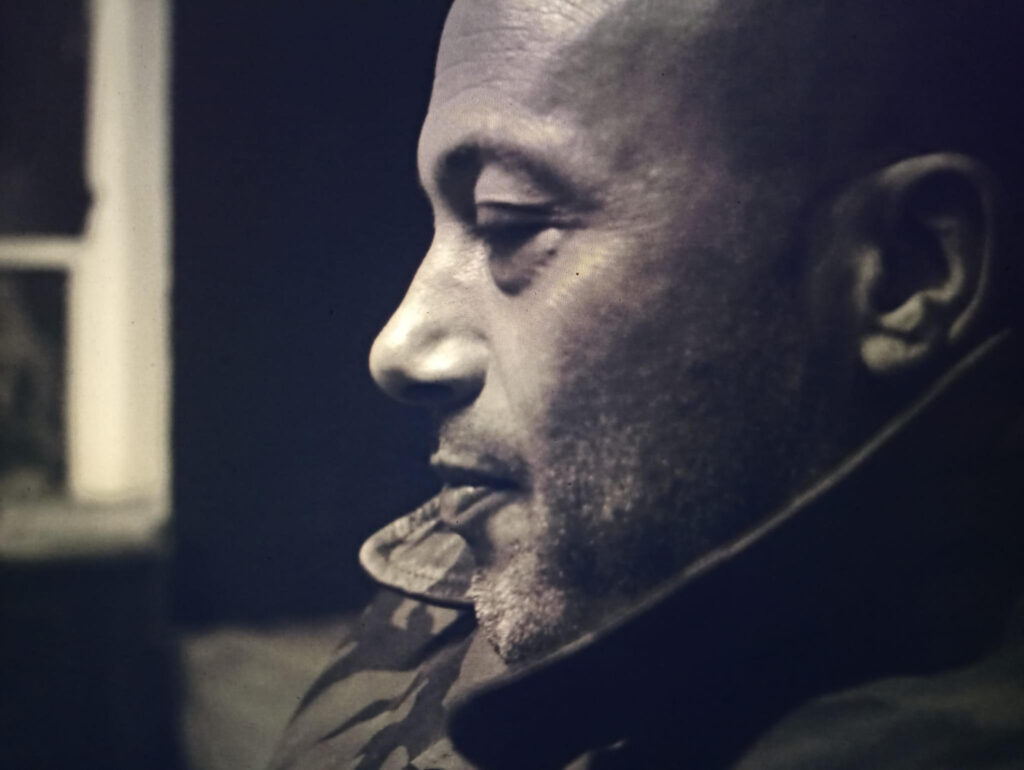
Howie B, how did you come to be involved with this collaboration?
Well, Pan and Thorkel sent me their album a year ago and I fell in love with it immediately, the music and the concept and its relation to Nature. My intention was to put the album out on my label Pussyfoot, but that didn’t happen because of a legal situation between my partner and myself. I did however get a chance to touch on one song which features Mari and I am very happy with the result.
Over this year, how has the nature of your work changed and is that also reflected in this collaboration between Mari and Tunglleysa?
For me, it hasn’t changed very much how I work, as I live on an Island and I am very used to working remotely. It just takes a wee bit longer, though artistically the results are very satisfying.
You have worked with some hugely influential names in the music business. How do you choose the artists you want to work with now and how important are showcase festivals for your work?
It’s a musical spark that fires me. That’s how I make the choice quite simple. Then, of course, the sociability too, that’s very important for me. Showcases and live performance are integral in what I do and also the people I work with. Performance is paramount to music! So this last year has been a big blanket on that and I need to exercise patience there.
This is now the second Estonian folk artist you’ve worked with, Maarja Nuut with Ruum being the first one – how would you compare these two experiences? In connection to these two collaborations – do you think there is something like an “Estonian sound”?
Well, for me it’s music and working with people who can express themselves in the musical medium. Yes, of course, there is an Estonian sound – the language and the genetic melodies instilled there. It’s so unique and beautiful.
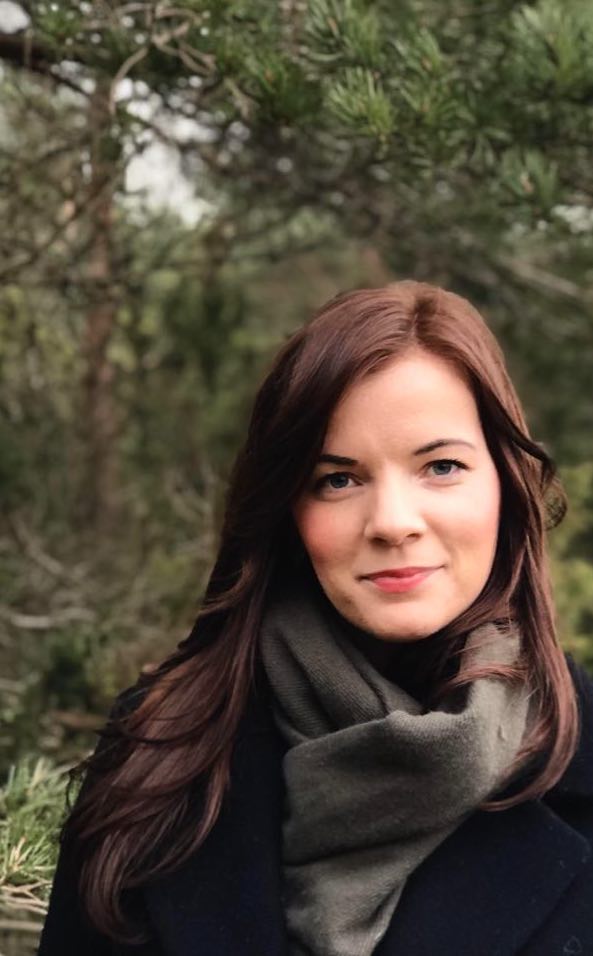
Marili, when two artists come together and decide to collaborate, what’s the manager’s role from there on?
I help out with all kinds of arrangements starting with the paperwork and ending with making sure that the content musicians have created gets wrapped up in the best possible way to reach as many listeners as possible. Ideally these collaborations could lead to awesome new collaborations and future opportunities. Everything happens in synergy. The brighter the synergy is, the better!
In addition to Mari Kalkun, you also represent Kadri Voorand and Duo Ruut, and you’re the day to day manager for Tommy Cash. As a manager, what are the biggest challenges and joys?
The greatest joy is the creation itself to be inspired from. This triggers my inner impulse, ideas and also challenges. The whole process is actually a challenge and a pleasure at the same time. Without that kind of balance, just taking care of business 24/7 would seem empty somehow. Of course, as a manager, the pulse goes up in a positive sense, when you get to create new contacts and collabs, find new approaches and learn or when seeing a joyful audience after a great concert experience. These are the challenges which easily lead to joy when you’re in the business with your whole heart. And this in turn makes you full of ideas and wish to help the artist as far and high on their career ladder as possible. Finding right ways for this to gain the most effective and stylish result is a cool challenge. As well the reality that often the investments are not equal with the income, especially with the rising artists or when entering the new markets. Also TMW offers a good opportunity to build the network and career. A lot of good has come out of the meetings during TMW and other networking events. Actually, my path towards becoming a manager also began at TMW.
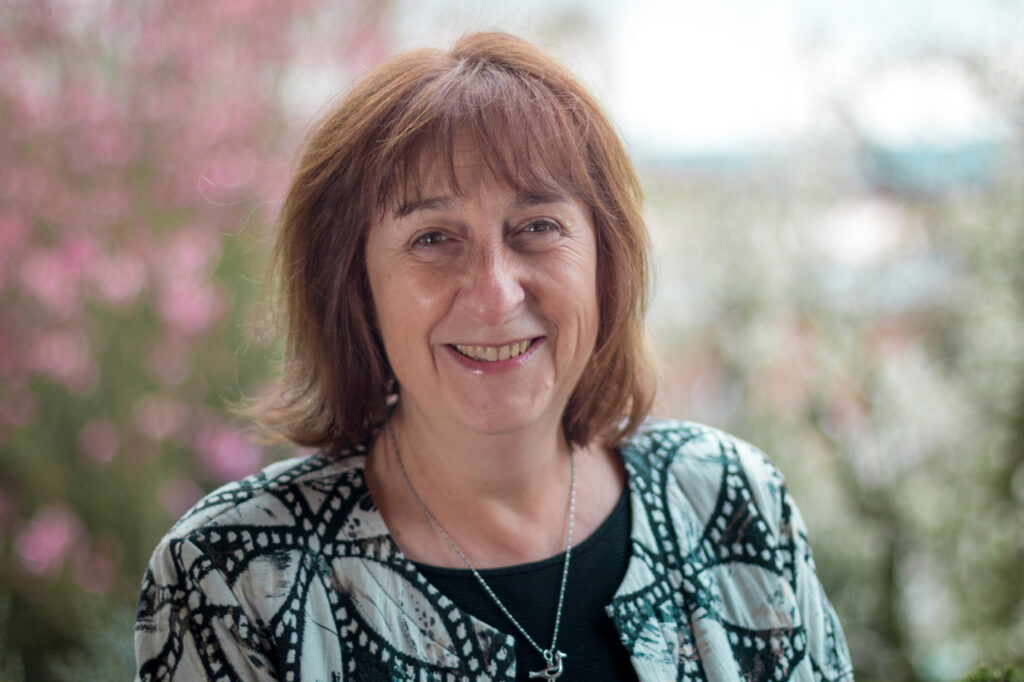
Juliana, from the agent’s perspective, what do the post-pandemic concert opportunities look like for the artist?
That is very hard to predict at the moment, considering how much the music landscape has changed over the course of the pandemic. Which festivals and which stages make it out is something we’ll hopefully see in the fall. Be that as it may, the tendency now is that for a solo artist and artists with small collectives it is much easier to plan tours abroad and the opportunities are greater. I hope that from autumn 2022 we can book shows at a more or less normal pace again. I’m very happy to have some offers on the table already, and I hope to get invitations for Mari to perform at some great festivals and shows.
Are showcase festivals such as TMW helpful in an agent’s work? What role has TMW played in your agency’s work?
Showcase festivals are immensely important for expanding the professional network. They also present a wonderful opportunity to show an artist to the music industry in his or her homeland and in their own cultural space, where the fans can definitely help out. For me, TMW is especially important, because the three bands that I work with are from Estonia, and the first time I saw them all live was at TMW. I also saw Mari live for the first time at TMW, where I was captured by her charismatic and multifaceted performance. And then her “Õunaaia album” (“Apple Orchard Album”) hit me straight in the heart.
What’s in the works next?
Mari: At the moment it’s a great time for creative work, which I try to do as much as I can. I’m also trying to use this extra time we have now to develop my musical skills. This spring I expect to finish the music for the theatre production Longing for Pechory (Petserimaa igatsus), in the summer I will (hopefully) be playing shows again, and in autumn I would like to start recording my next full-length album, which I’m already so excited about!
Pan and Þorkel: Our new album will be released in late summer, and its first single Sortufen featuring Mari Kalkun is out now. And then working on new music and playing live when circumstances allow.
Marili: Despite the complicated situation in the world at large, these are exciting times! Speaking of Mari more specifically, this is a year of interesting musical collaborations, and at the same time she’s also started the creative process for a new album. What could be a more magical time for a manager – so many new ideas waiting to be brought to life!
Juliana: A very exciting project that I am working on is the recently founded Association of Global Independent Music Agents (AGIMA). We are 13 agents, all doing our best to develop the careers of our artists together. It’s a very interesting experiment, because we’re all more used to working alone and independently.